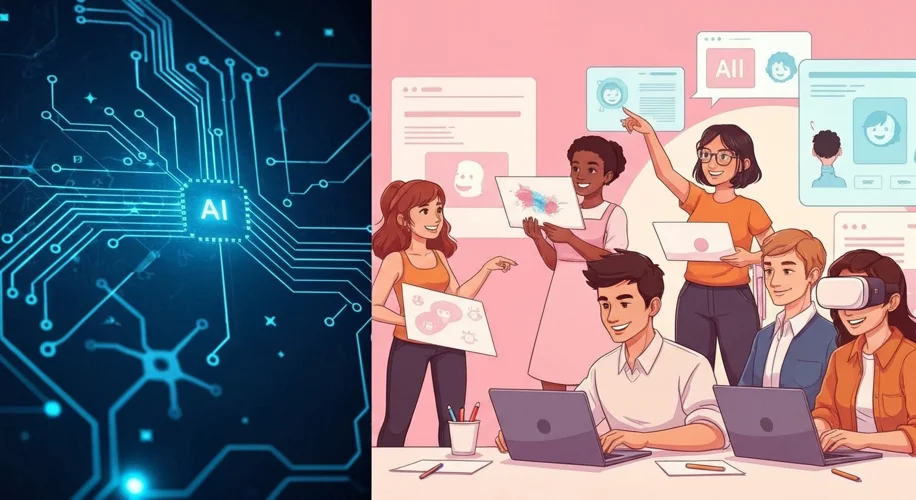Okay, so hear me out… AI isn’t some scary monster about to take over the world or steal all our jobs. At least, not in the way the headlines sometimes make it sound. As someone deep in the AI trenches, pursuing a PhD and building stuff myself, I see the real picture. And for us Gen Z and young millennials, it’s actually pretty exciting.
Let’s cut through the hype and the fears. What’s AI actually doing out there, right now?
Think about your daily grind. AI is already in the background, making things smoother. Grammarly, for instance, uses AI to help you write better emails or essays. It’s like having a super-smart assistant that catches your typos and suggests clearer phrasing. It doesn’t write for you, but it makes your writing better.
In gaming, AI is powering more realistic enemy behaviors, creating dynamic worlds, and even helping developers design levels. Ever been impressed by how smart the NPCs are in a game? That’s AI at work.
Beyond entertainment, AI is starting to make some serious waves in fields like healthcare. AI tools are helping doctors analyze medical images faster, potentially spotting diseases earlier than ever before. It’s not about replacing doctors, but giving them better tools to do their jobs.
Now, about those job fears. It’s a valid concern, I get it. Some jobs will change, and some might become automated. But here’s the catch: AI also creates new jobs. Think about prompt engineers – people who know how to talk to AI to get the best results. Or AI ethicists, ensuring these tools are used responsibly. These roles didn’t exist a few years ago.
We’re also seeing AI become a powerful co-pilot for creators and developers. I use AI tools in my own projects, and they speed up tedious tasks, letting me focus on the creative and complex parts. It’s like having a built-in assistant that handles the grunt work, so you can focus on innovation. This is especially true for coding. AI can help write boilerplate code or debug, but it still needs human direction and oversight.
But here’s the real talk: the ethics of AI. This is super important. We need to be smart about how we use AI. Deepfakes are a thing, and data privacy is a huge concern. As users and future creators, it’s on us to demand transparency and responsible AI development.
For us, Gen Z and young millennials, this is our future. AI isn’t something that’s coming; it’s already here, shaping our world. Instead of being afraid, we should be curious and engaged. Learn how these tools work, understand their potential, and think about how you can use them to build cool things or solve problems.
AI is a tool. Like any tool, it can be used for good or bad. The key is to understand it, guide it, and use it to amplify our own abilities. It’s about augmenting human intelligence, not replacing it. So, let’s get building, learning, and creating – together with AI.

